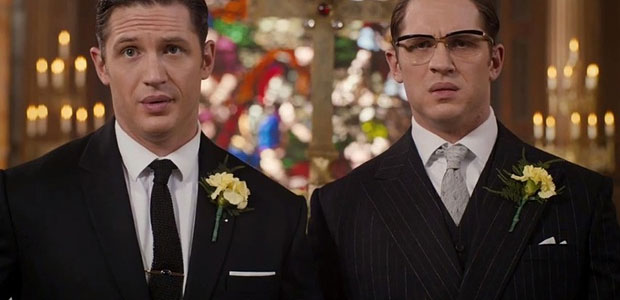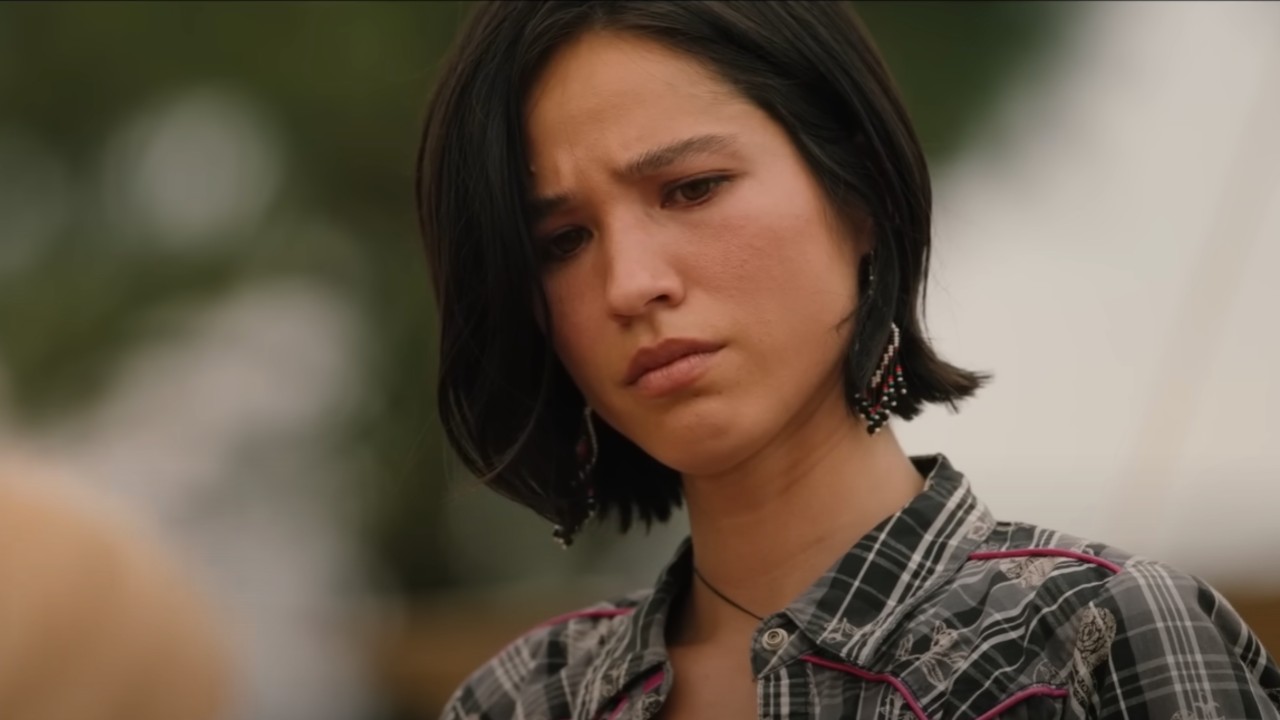Like many others, I first started to recognize the depths of Tom Hardy’s acting talent thanks to his turn in director Nicolas Winding Refn’s Bronson. A years-spanning biopic following the story of a London-based criminal, the film provided opportunity for the star to dive head-first into the mind of a fascinating/terrifying human being, and the result is a captivating, immersive and transformative performance.
Now, seven years later, Hardy has found himself starring in another year-spanning biopic about a London-based criminal – though this time with the challenge of portraying a set of twin brothers. As you would expect, the actor puts on yet another spectacular show, effortlessly disappearing into two distinct characters at once, but what’s unfortunate is that writer/director Brian Helgeland’s Legend is never really able to expand the film beyond that particular hook – with the rest of the movie producing little more than familiar arcs and various tropes from the gangster genre.
Based on a true story, Tom Hardy plays both Reggie and Ron Kray, a pair of sibling gangsters from London’s East End who wound up at the top of the organized crime racket in the 1960s. With each of the brothers possessing very different outlooks, behaviors, and all around thought processes, the star is able to balance an ample amount of crazy and rationality across two characters, and in the process creates two well-defined and engrossing performances. Reggie gets a majority of the spotlight in the movie, being the more rational of the two brothers and dealing with what is highlighted as the central conflict of the story: the love of his brother and the allure of the gangster lifestyle versus the love of his law-abiding, moral wife, Frances Shea (Emily Browning). It’s in this role that Hardy practices his special brand of what can be described as threatening charisma, and while he’s not exactly what you’d call a likable protagonist, you are still compelled to see what he will do next and how he will respond to the consequences of those actions.
While Reggie’s reasonableness and being torn between two worlds anchors Legend, it’s his brother that really provides the film’s big sparks. Accented with a pair of half-rimmed glasses and a dented nose that gives him a perma-congested voice, Ron is introduced to the film as a psychopath locked away in a mental institution – but after getting an early release, he essentially plays the Joe Pesci to Reggie’s Ray Liotta. The character is outfitted with numerous “quirks” – from fits of blinding rage to fearless and regular revelations that he is a homosexual – and he is far and away the more extreme personality… which is Hardy’s bread and butter. When he’s in character, you can practically see the misfiring synapses behind his eyes, as he clearly wears every emotion he’s feeling on his face at once – and while at times it’s somewhat amusing, there are far more times where it most definitely is not. He’s as unpredictable as people get (his ultimate dream is to build a utopian city in Enugu, Nigeria), and his screen presence is disturbingly magnetic as a result.
Realistically pulling off the twin performances does require a bit of skill in the direction and editing of the film – and while Brian Helgeland never really includes any “how did they do that?” moments in his filmmaking style, you also never feel distracted by the sight of Tom Hardy carrying on a conversation with himself wearing a different costume. Similar sentiments can be shared about Legend’s larger aesthetic. The scale of the movie does feel small, despite being set over the course of many years, but it’s entirely convincing in its portrayal of the period, and succeeds at being incredibly intense during its most gangster-y moments – containing a good handful of good ol’ fashion brawls, beat-downs and executions.
Legend packs in pretty much every classic element of the genre – from the distressed wife wanting her husband to go clean, to the hard-nosed cop targeting the protagonists, to the details of various racketeering/extortion/bribery schemes broken down – but the problem is that’s pretty much all the movie has. Obviously there are limitations that come with making a film that’s based on real history, as there’s only so far that you can stretch reality before it just becomes fiction, but after that consideration you’re left questioning if it’s really a story that demands to be told on the big screen. Though I enjoyed the film overall, I can’t say that this wasn’t on my mind while walking out of the theater.
Ultimately, Legend serves as a solid vehicle for Tom Hardy, and while it’s never boring, it also doesn’t carry a great deal of weight. If you’re open to sitting through a conventional gangster rise-and-fall story for a fantastic dual performance from a tremendously talented actor, you will find it entirely watchable – despite not being incredibly memorable.
Your Daily Blend of Entertainment News

Eric Eisenberg is the Assistant Managing Editor at CinemaBlend. After graduating Boston University and earning a bachelor’s degree in journalism, he took a part-time job as a staff writer for CinemaBlend, and after six months was offered the opportunity to move to Los Angeles and take on a newly created West Coast Editor position. Over a decade later, he's continuing to advance his interests and expertise. In addition to conducting filmmaker interviews and contributing to the news and feature content of the site, Eric also oversees the Movie Reviews section, writes the the weekend box office report (published Sundays), and is the site's resident Stephen King expert. He has two King-related columns.

